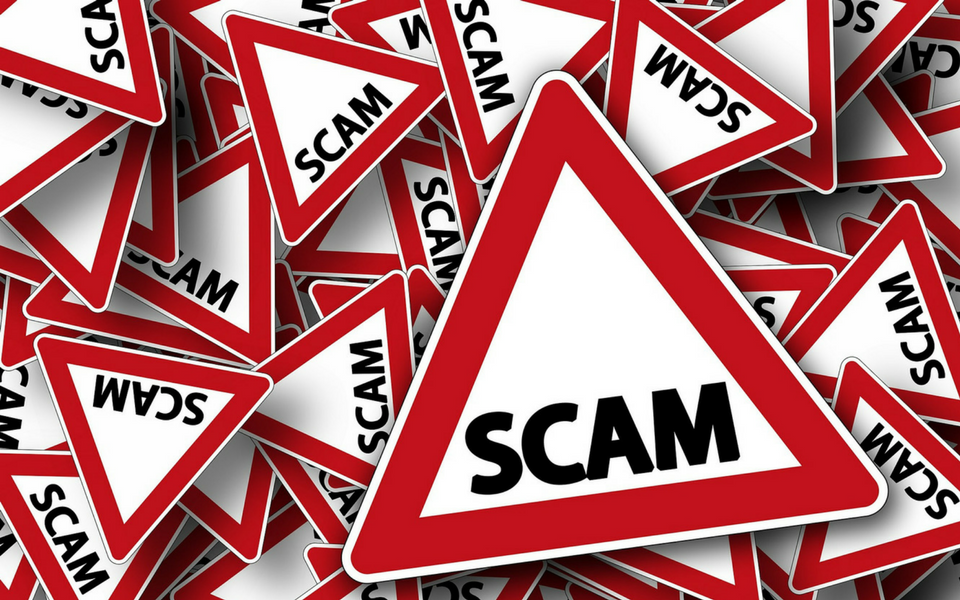
Published Tuesday 24 March 2020 at 12:17
People are being warned about a series of scams related to the coronavirus.
The Chartered Trading Standards Institute (CTSI) has issued the warnings after reports that scammers are targeted people both in person and through technology and through price rises in shops.
One scam involves fake healthcare workers claiming to be offering ‘home-testing’ for the COVID-19 coronavirus.
Other scams are in the form of emails and phone apps which allow the scammer to take money from your bank account.
Trading Standards has also received lots of complaints about some smaller shops putting up their pricing in the wake of people stocking up due to the coronavirus
Trading Standards officers are planning advisory visits and warning retailers not to raise their prices to take advantage of the current coronavirus emergency.
People have reported food prices rising, as well as other in-demand goods, including antibacterial handwash and facemasks.
Officers will be responding to information from members of the public and will be using enforcement powers to investigate complaints – where retailers have been found to have increased prices unreasonably, they will face legal action.
You can report any pricing issues in shops to: 0345 4040506 or www.citizensadvice.org.uk
Councillor Jim Smith, Executive Member for Environment, said:
This is pretty appalling behaviour from a minority of shop owners taking advantage of people who are extremely worried about the current situation. I want them to know that this is a warning that if you try this tactic, we will hear about it and we will take action.”
Scam emails:
Emails claiming to be from the Government offering a tax rebate to support people through this challenging period.
The emails, which look official, tell people of the rebate amount and request that they click a link to receive it. At the link, the person is asked to fill in personal details, including their credit card number and address. These details allow the scammer to take money directly from your bank account.
Other email-based scams include one claiming to be from the World Health Organisation (WHO). The email, which claims to hold crucial coronavirus safety advice, has an attachment which downloads a keylogger, allowing scammers to follow the online movements of the user, and gain access to their device and personal details.
Scam phone apps:
There are reports of several ‘coronavirus update’ apps, which claim to provide updates on the virus. The fake app contains a form of ‘ransomware’, named CovidLock, which upon downloading, locks the phone and displays a message demanding that the user pay a sum of money to unlock it. These apps are available to download from various unofficial websites.
Phone users are advised to only download apps directly from the Apple Store, or Android Play Store as these are safety checked by the platforms.
For trusted news and advice on Covid-19 coronavirus, check for updates from the Department of Health and Social Care in the UK, Public Health England and the World Health Organisation (WHO).
COVID-19 ‘home-testing’ scams
The Chartered Trading Standards Institute (CTSI) is warning the public not to open their doors to bogus healthcare workers claiming to be offering ‘home-testing’ for the COVID-19 coronavirus.
The alert comes as part of CTSI’s ongoing advice to the public about scams and rogue practices relating to the spread of the disease.
Suspicious callers are said to have been knocking on doors of elderly and vulnerable residents in various parts of the UK, saying that they are health officials doing door-to-door testing.
For trusted news and advice on COVID-19 coronavirus, check for updates from the Department of Health and Social Care in the UK, Public Health England and the World Health Organisation (WHO).
Councillor Mohammed Khan, Leader of Blackburn with Darwen Council, said:
This is despicable behaviour from a small minority of unscrupulous people at a time when people are more vulnerable and scared due to this unprecedented situation.
This is a time when we should all be pulling together and supporting each other, and protecting our most vulnerable people who are most at risk from scams like these. We will be taking the strongest action against anyone caught operating any of these scams.”
Councillor Jim Smith added:
It is disgusting that there are people who are trying to scam money off people at this time. I want to urge people to be extra cautious of any information like this.
People need to stay safe and vigilant and only access information you know is coming from fully reputable sources. Also, be extra careful of people offering any services at the door and only deal with official medical settings such as your GP or hospital.”
For more information on these scams, go to: https://www.tradingstandards.uk/news-policy/news-room/2020/ctsi-issues-warning-over-new-covid-19-related-scams
Citizens Advice (CitA) has launched advice on coronavirus scams: https://www.citizensadvice.org.uk/consumer/scams/check-if-something-might-be-a-scam/
CTSI Chief Executive, Leon Livermore, said:
It is abhorrent that unscrupulous individuals are using this difficult time as an opportunity to immiserate others further. Consumers should now be extra vigilant, and aware of these new scams that take many forms. The general rule of scams applies – if it seems too good to be true, then it probably is.
CTSI is monitoring these developments and will update the public as we receive further intelligence. In the meantime, the public should follow the official Government advice, and take all necessary precautions.”
Filed under : coronavirus | Councillor | Jim Smith | Mohammed Khan | scams | trading standards
